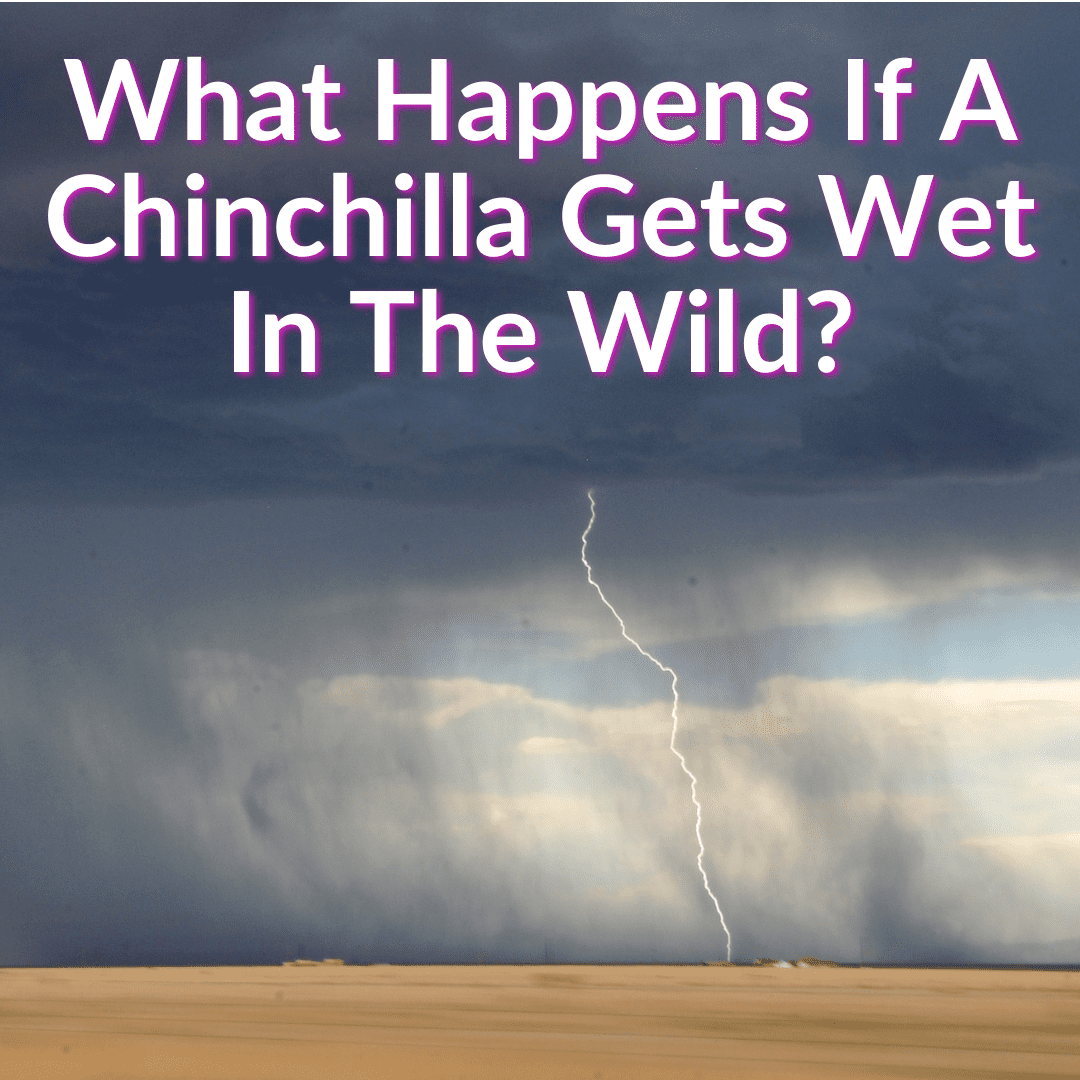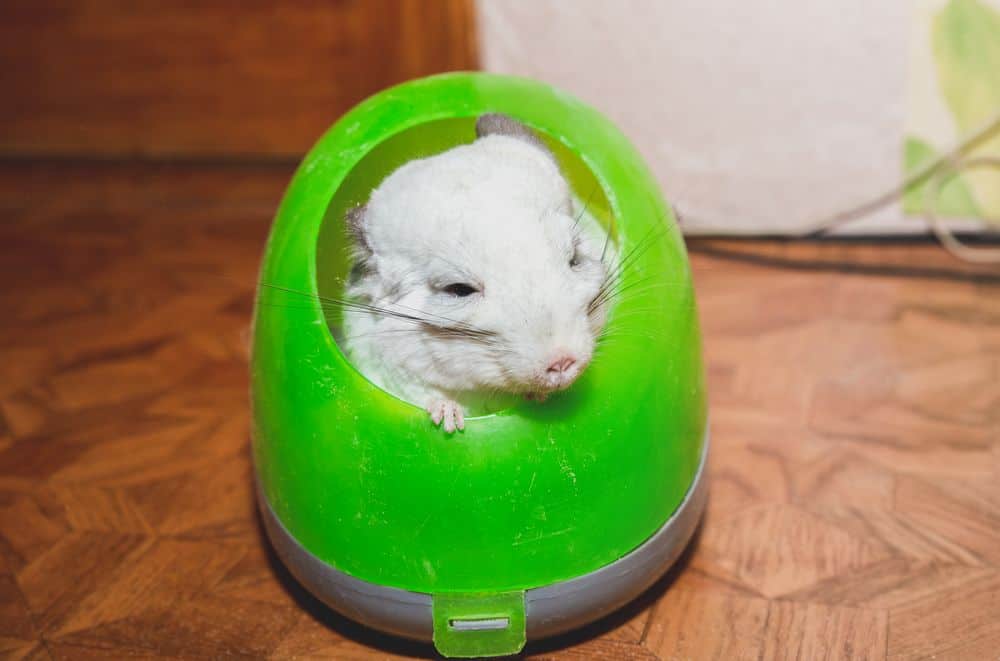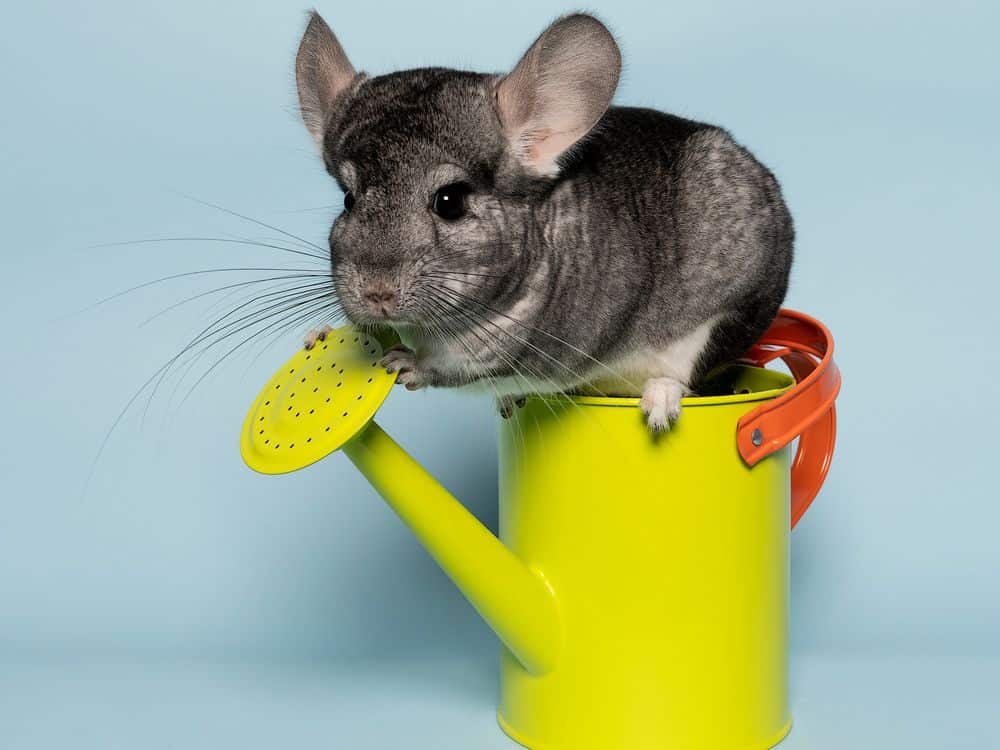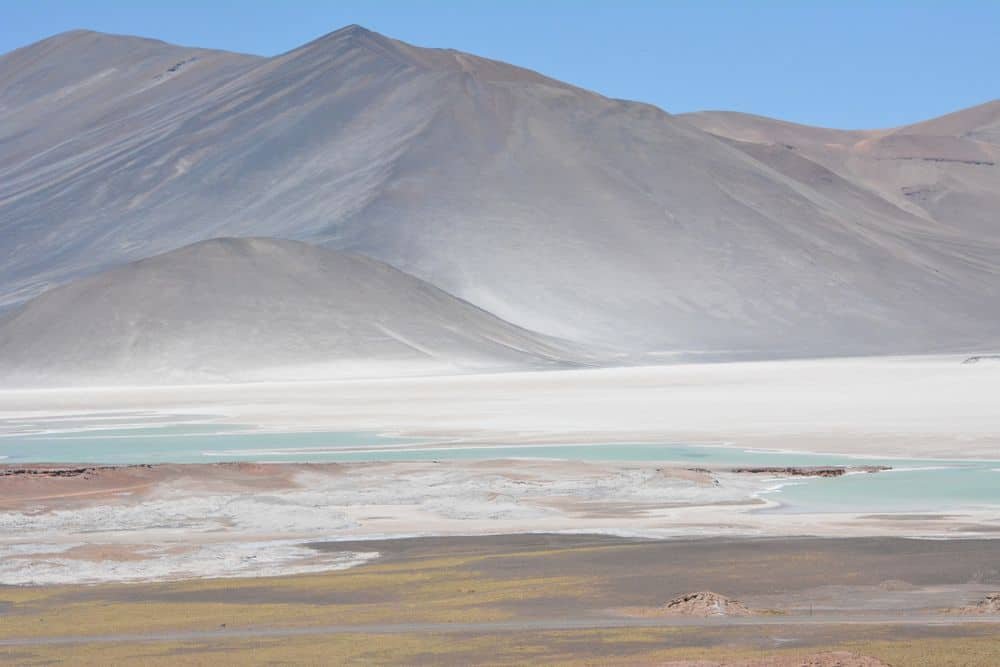
That’s not entirely true. They can, but getting wet can cause serious problems.
That’s why you want to do your best to keep your pet chinchilla from ever getting wet.
And if it does get wet, help it get dry, to avoid any complications.
But what happens if a chinchilla gets wet in the wild, where it does not have a human to help it get dry?
Well, it can have disastrous consequences.
Keep reading to learn what can happen to a chinchilla that gets wet in the wild and how they manage to keep themselves dry to avoid those consequences.
Contents
What Happens If A Chinchilla Gets Wet In The Wild?
If a chinchilla somehow gets wet in the wild, it could cause some serious problems. A chinchilla’s fur is incredibly dense, which means it takes a long time for it to dry.
Having damp fur for so long can result in fungi starting to grow on the skin, which can lead to nasty skin infections. Being wet can also make a chinchilla cold and sick.
So if they can’t get wet, how do chinchillas get clean? Or do they even get clean? They do. And they have a unique way of achieving it.
How Chinchillas Bathe

You may be wondering how a chinchilla bathes if it can’t get wet. Well, they take dust baths to keep clean. That’s right, they clean themselves with dust. A chinchilla will roll around in dust, which then sticks to the fur and absorb any excess oils or dirt.
Dust baths also prevent moisture from building up, which can result in skin infections. The dust helps to keep a chinchilla clean and its fur in its best condition.
Fur Fungus
If a chinchilla’s fur stays wet for too long then it could start to grow fur fungus. Fur fungus can cause a variety of different issues for a chinchilla, such as hair loss, itching, or crusty skin. I’m sure you can imagine this can be very irritating for a chinchilla.
If a chinchilla grows fur fungus in the wild there isn’t really anything it can do about this. The problem will likely continue to get worse and worse for the chinchilla.
If your pet chinchilla grows fur fungus, you can step in and help out. You will need to get your pet to the vet, who will prescribe some anti-fungal meds.
If you do not get fur fungus and its related physical symptoms treated, it could also result in more serious problems such as a respiratory infection.
Your pet could also pass the infection on to other chinchillas, which could become a serious problem if you have more than one. Obviously, this is also a huge issue in the wild, where chinchillas tend to live in large packs.
What About Pet Chinchillas?

If your pet chinchilla gets fully drenched in water, that’s a serious problem. But if it’s just a few droplets of water, they won’t harm your chinchilla.
You may also run into an emergency situation where you need to get your pet chinchilla wet. This could be the case if your chinchilla has managed to get urine on itself or is covered in paint or other harmful liquids like cleaning supplies or other chemicals.
If this is the case, you should apply water to the affected area only. Try to avoid drenching your chinchilla in water completely. And try to use as little water as possible to remove any products.
You should also keep an eye on your chinchilla’s fur as it is drying, to ensure that it doesn’t clump together. This can become painful for your chinchilla.
You can use a towel to try to dry a wet chinchilla. You can also use a blow dryer, but keep it on a low setting and do not use heat. That could cause your pet to overheat.
How Do Chinchillas Avoid Water In The Wild
The chinchilla’s natural habitat lies in the dry Andes mountains in South America. This means there isn’t a great amount of water available for them to start with.

It is uncommon for rain to make an appearance in this corner of the world, so that isn’t usually something a chinchilla has to worry about. If the odd shower does appear, there are a lot of rocks in the area under which a chinchilla can take shelter.
Wild chinchillas may also get their water intake from plants, rather than watering holes. A common plant that they eat is a cactus. The chinchilla can go a long time without water and requires a minimal amount of water to keep hydrated, so a nibble on a cactus could be enough to keep it well hydrated.
Because wild chinchillas live in such a dry area, it can be difficult for them to come across naturally flowing water. Plants can sometimes be their only option.
Chinchillas Getting Wet In The Wild: Final Thoughts
Chinchillas live in an area that gets little rainfall, so there is not much chance of them getting wet in the wild. And when it does rain, there are plenty of rocks around under which they can hide and wait out the rain.
And that’s fortunate, because if a chinchilla did get wet in the wild, it would take a long time for its fur to dry. There is a high chance mold could form or the chinchilla could get cold. Both issues could lead to serious health problems.
Leave a Reply